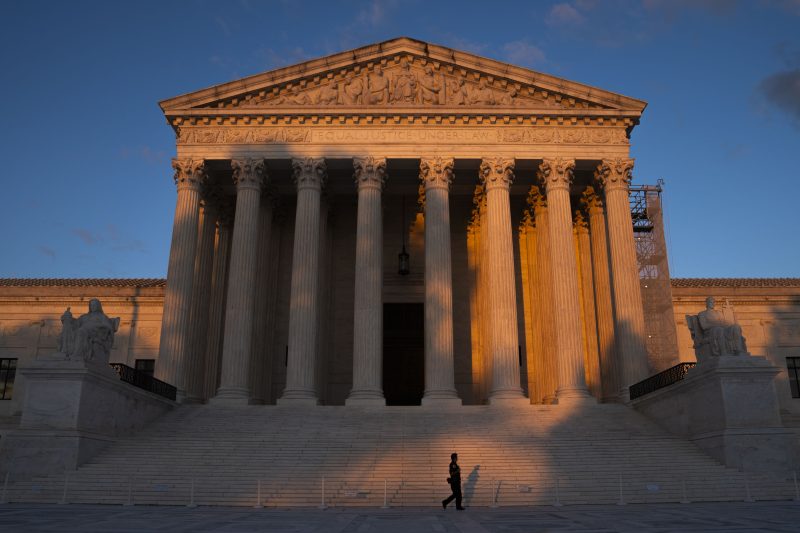
Supreme Court Docket: Ghost Guns and Transgender Care in Spotlight as Election Nears
In today’s complex and ever-evolving political landscape, several crucial issues are set to dominate the agenda of the Supreme Court as the country gears up for a pivotal election. Among these pressing matters are the regulation of ‘ghost guns’ and the rights of transgender individuals to access appropriate healthcare. These topics have sparked intense debates and drawn sharp divisions within society, raising critical questions about the balance between individual liberties and public safety.
‘Ghost guns’ represent a growing challenge for law enforcement agencies and policymakers alike. These firearms, which can be assembled from untraceable parts without serial numbers, have increasingly become a favorite tool for individuals looking to circumvent existing gun regulations. The anonymity and ease of acquisition associated with ghost guns have raised concerns over their potential use in criminal activities, including mass shootings and acts of terrorism. As such, the Supreme Court faces the arduous task of determining how best to address this loophole in gun control measures while respecting the Second Amendment rights of citizens.
On the other hand, the issue of transgender care has emerged as a prominent battleground for LGBTQ rights and healthcare access. Transgender individuals often face significant barriers when seeking medical treatment that aligns with their gender identity. From hormone therapy to gender-affirming surgeries, these individuals encounter discrimination, lack of insurance coverage, and limited access to knowledgeable healthcare providers. As the Supreme Court takes up cases related to the rights of transgender individuals to receive appropriate care, the justices are tasked with balancing religious freedoms, medical ethics, and overarching principles of equality and nondiscrimination.
The intersection of these topics on the Supreme Court’s docket underscores the complex and interconnected nature of social and political issues in contemporary America. The outcomes of these cases will have far-reaching implications not only for the individuals directly impacted but also for broader debates surrounding gun control, healthcare access, LGBTQ rights, and civil liberties. As the nation braces for a critical election cycle, the decisions rendered by the highest court in the land will shape the legal landscape and define the boundaries of individual rights and collective responsibilities for years to come.
